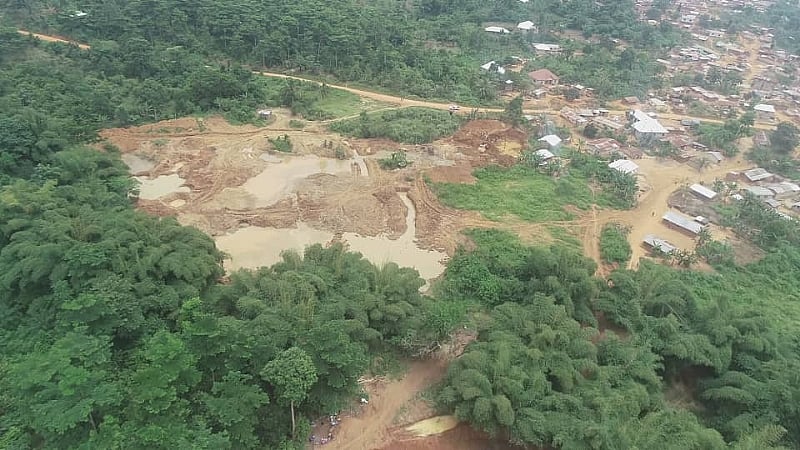On October 7, 2024, a faction within the Kumasi Technical University chapter of the Technical University Teachers Association of Ghana (TUTAG) expressed opposition to Organised Labour’s announced strike against illegal mining, known locally as galamsey. They contended that Organised Labour had not adequately consulted with its members prior to declaring the strike, set for October 10. This response came amidst rising tensions surrounding the government’s failure to address the detrimental effects of illegal mining on the environment and public health. In contrast to this faction’s dissent, Organised Labour, which comprises various unions and worker groups, was determined to proceed with the industrial action after a meeting with President Nana Addo Dankwa Akufo-Addo, where they were urged to reconsider their plans but ultimately chose not to.
In light of the dissenting views from some members at Kumasi Technical University, TUTAG issued a formal disclaimer on October 8, making it clear that the statement from those opposed to the strike did not reflect the views or positions of TUTAG as a whole. The association acknowledged the pressing issues surrounding illegal mining and emphasized the need for collective action to address the crisis that poses significant threats to local communities and the nation’s future. TUTAG aimed to unify its members, encouraging solidarity with Organised Labour’s objectives to combat the galamsey issue, which they view as critical to environmental preservation and public health.
TUTAG’s statement outlined its commitment to supporting the impending strike and reaffirmed its alignment with the broader goals of Organised Labour. The association distanced itself from any opinions that sought to undermine the collective movement against illegal mining and stressed that the environmental and health repercussions of galamsey are a pressing concern that transcends individual or political interests. TUTAG’s leadership urged unity among its members, recognizing that a coordinated stance is vital to effectively addressing the illegal mining crisis.
Moreover, TUTAG took steps to reassure its members of its dedication to representing their interests in the lead-up to the strike. As part of Organised Labour, TUTAG expressed a sense of shared responsibility and urgency in tackling the galamsey menace, declaring it a national priority. They emphasized their determination to work alongside other labor groups to pursue necessary changes that would benefit the environment and the working class. The association’s leadership articulated a clear pathway toward aiming for collaborative and constructive solutions in addressing the issues associated with illegal mining.
In preparation for the upcoming industrial action, TUTAG scheduled an emergency Congress for October 9, 2024, to finalize their stance on the matter and to engage in discussions regarding the planned protest. This move was intended to galvanize support among members and reinforce the importance of their collective voice in the larger picture of national concerns regarding galamsey. By taking such measures, TUTAG sought to alleviate potential tensions among its members and present a united front against illegal mining practices.
In conclusion, TUTAG’s response to the dissenting views emerging from its Kumasi chapter demonstrates the complexities and dynamics within labor organizations faced with significant social issues like illegal mining. The association’s commitment to unity, environmental protection, and advocacy for the working class reflects its strategic approach to tackling the endemic challenges posed by galamsey. TUTAG urged its members to remain calm and committed to the collective action that was being planned, recognizing the potential consequences and responsibilities involved in such a nationwide strike. As the situation unfolds, TUTAG aims to ensure that its members’ interests are safeguarded while contributing to a larger movement aimed at addressing one of Ghana’s pressing national crises.














